The price is available ON REQUEST
Chemotherapy is basically a kind of chemical drug therapy that helps destroy the quickly developing cells in the body. The chief usage of Chemotherapy is to treat cancer as the cancer cells grow faster than any other cells in the body. A doctor who treats cancer patients is known as an oncologist.
Chemotherapy is frequently carried out along with other therapies such as radiation, surgery, and hormone therapy as well. However, it depends on various facets like
Type of cancer
Stage of cancer
Previous cancer treatments
Location of cancer cells
Overall health
Personal treatment preferences
Chemotherapy is considered one of the most effective ways to treat cancer. However, chemotherapy also leaves one with various types of side effects which can hugely affect one’s state of life. This is the reason why one must compare the side effects of chemotherapy with the decision of not getting the treatment to figure out if chemotherapy is the best option or not.
Chemotherapy cost in Spain varies from person to person as it depends on several factors such as –
Types of medications
Types of chemotherapy
The time period of cancer
The frequency of the treatment
Treatment cost
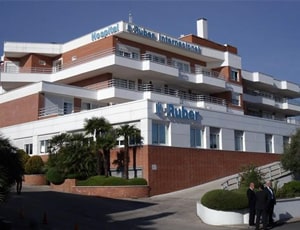
The Hospital has a wide architectural structure that consists of-
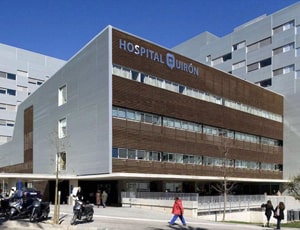
Apart from in-detail treatment procedures available, Hospital Quirnsalud Barcelona located in Barcelona, Spain has a wide variety of facilities available for International Patients. Some of the facilities which are provided by them are Accommodation, Airport Transfer, Choice of Meals, Interpreter, SIM, TV inside room. Also listed below are some of the most prominent infrastructural details:
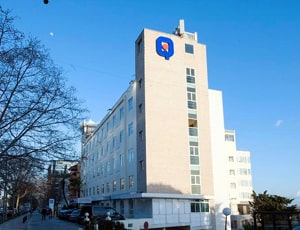
Apart from in-detail treatment procedures available, Quironsalud Marbella Hospital located in Marbella, Spain has a wide variety of facilities available for International Patients. Some of the facilities which are provided by them are Accommodation, Airport Transfer, Choice of Meals, Interpreter, SIM, TV inside room. Also listed below are some of the most prominent infrastructural details:

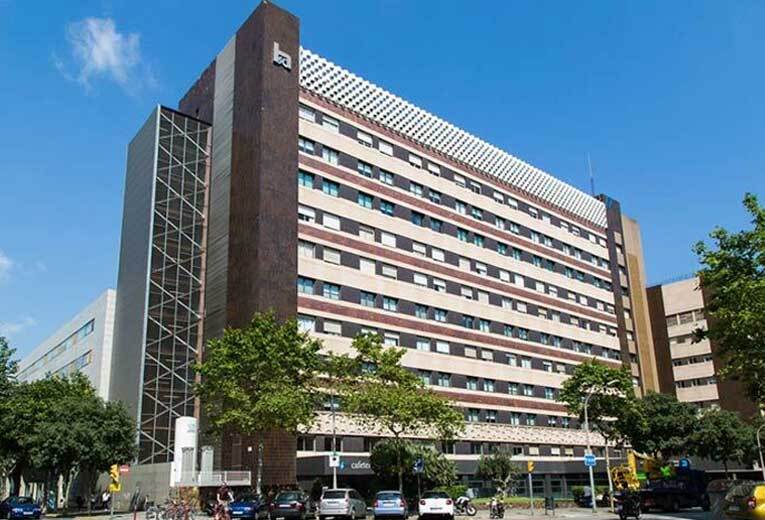
The Hospital is an amalgamation of a group of buildings located in the Eixample Left of Barcelona, ??between Paris, Viladomat, and London streets. It has a capacity of 350 adjustable beds and first-class hotel-like services inpatient rooms. Currently, it has a workforce of about 1100 Healthcare Professionals.
In order to treat patients with intensive care, the Hospital has 10 beds in its ICU for critically ill patients.
The Hospital has launched a few more things to improve customers’ services- 4 new Operating Rooms and a New Diagnostic Imaging Service.
Other Services
Types of Room
Double Rooms, Double Rooms for Individual Use, and Single Rooms; equipped with an easy-to-use electrical movement control system and a nursing call/warning system, located at the head of the bed, a sofa-bed for the companion, and a bathroom with a shower. They are also equipped with television and telephone.
A cafeteria/Restaurant is also available for the patients or visitors.
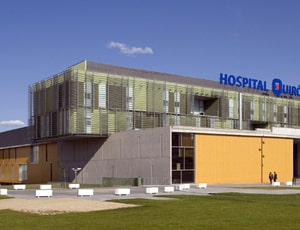
Apart from in-detail treatment procedures available, University Hospital Quironsalud Madrid located in Madrid, Spain has a wide variety of facilities available for International Patients. Some of the facilities which are provided by them are Accommodation, Airport Transfer, Choice of Meals, Interpreter, SIM, TV inside room. Also listed below are some of the most prominent infrastructural details:
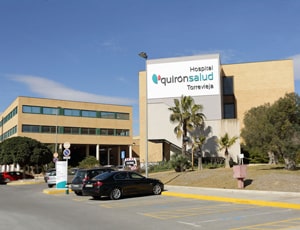
Quironsalud Torrevieja Hospital located in Torrevieja (Alicante), Spain is accredited by ISO. Also listed below are some of the most prominent infrastructural details:
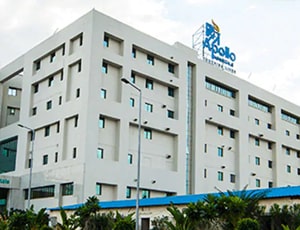
Types of Chemotherapy in Apollo Hospital and its associated cost
| Treatment Option | Approximate Cost Range (USD) | Approximate Cost Range (INR) |
|---|---|---|
| Chemotherapy (Overall) | 333 - 1652 | 28251 - 140570 |
| Standard Chemotherapy | 341 - 892 | 27967 - 73079 |
| Targeted Therapy | 903 - 1367 | 73203 - 111680 |
| Immunotherapy | 1147 - 2058 | 92420 - 164191 |
| Hormone Therapy | 444 - 1107 | 36856 - 91146 |
| Intrathecal Chemotherapy | 221 - 683 | 18245 - 54694 |
| Intra-arterial (IA) Chemotherapy | 336 - 917 | 27417 - 72946 |
DOCTORS IN 13 SPECIALITIES
FACILITIES & AMENITIES
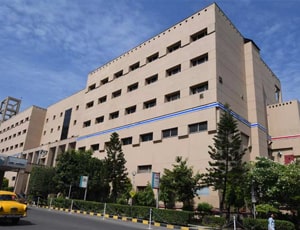
Types of Chemotherapy in Apollo Multispecialty Hospitals and its associated cost
| Treatment Option | Approximate Cost Range (USD) | Approximate Cost Range (INR) |
|---|---|---|
| Chemotherapy (Overall) | 344 - 1678 | 27165 - 138093 |
| Standard Chemotherapy | 335 - 900 | 27722 - 73453 |
| Targeted Therapy | 907 - 1327 | 74660 - 109541 |
| Immunotherapy | 1135 - 1980 | 90474 - 169164 |
| Hormone Therapy | 445 - 1118 | 36331 - 91897 |
| Intrathecal Chemotherapy | 226 - 672 | 18570 - 54481 |
| Intra-arterial (IA) Chemotherapy | 339 - 893 | 27669 - 73972 |
DOCTORS IN 13 SPECIALITIES
FACILITIES & AMENITIES

Types of Chemotherapy in Memorial Atasehir Hospital and its associated cost
| Treatment Option | Approximate Cost Range (USD) | Approximate Cost Range (TRY) |
|---|---|---|
| Chemotherapy (Overall) | 450 - 2052 | 13406 - 61455 |
| Standard Chemotherapy | 444 - 1021 | 13263 - 30844 |
| Targeted Therapy | 1015 - 1603 | 29967 - 47990 |
| Immunotherapy | 1324 - 1799 | 41259 - 54192 |
| Hormone Therapy | 553 - 1230 | 17048 - 37111 |
| Intrathecal Chemotherapy | 282 - 774 | 8309 - 24256 |
| Intra-arterial (IA) Chemotherapy | 445 - 1025 | 13539 - 29855 |
DOCTORS IN 13 SPECIALITIES
FACILITIES & AMENITIES
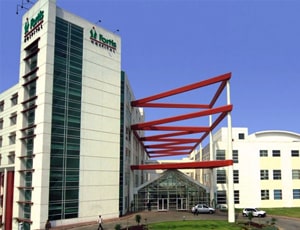
Types of Chemotherapy in Fortis Hospital and its associated cost
| Treatment Option | Approximate Cost Range (USD) | Approximate Cost Range (INR) |
|---|---|---|
| Chemotherapy (Overall) | 304 - 1523 | 25075 - 124686 |
| Standard Chemotherapy | 306 - 810 | 24929 - 66576 |
| Targeted Therapy | 814 - 1216 | 66761 - 99505 |
| Immunotherapy | 1019 - 1832 | 83335 - 150273 |
| Hormone Therapy | 404 - 1019 | 33326 - 83437 |
| Intrathecal Chemotherapy | 203 - 610 | 16591 - 49714 |
| Intra-arterial (IA) Chemotherapy | 304 - 814 | 25023 - 66611 |
DOCTORS IN 12 SPECIALITIES
FACILITIES & AMENITIES
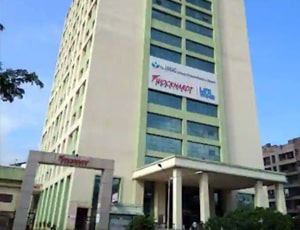
Types of Chemotherapy in Wockhardt Hospital, Umrao and its associated cost
| Treatment Option | Approximate Cost Range (USD) | Approximate Cost Range (INR) |
|---|---|---|
| Chemotherapy (Overall) | 304 - 1524 | 25006 - 124646 |
| Standard Chemotherapy | 305 - 812 | 24989 - 66353 |
| Targeted Therapy | 809 - 1222 | 66343 - 99551 |
| Immunotherapy | 1016 - 1826 | 83068 - 149556 |
| Hormone Therapy | 407 - 1013 | 33345 - 82944 |
| Intrathecal Chemotherapy | 203 - 611 | 16602 - 49992 |
| Intra-arterial (IA) Chemotherapy | 305 - 809 | 24960 - 66798 |
DOCTORS IN 13 SPECIALITIES
FACILITIES & AMENITIES
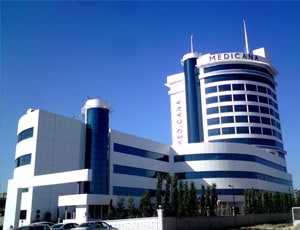
Types of Chemotherapy in Medicana Konya Hospital and its associated cost
| Treatment Option | Approximate Cost Range (USD) | Approximate Cost Range (TRY) |
|---|---|---|
| Chemotherapy (Overall) | 448 - 1991 | 13358 - 60148 |
| Standard Chemotherapy | 442 - 1009 | 13637 - 31108 |
| Targeted Therapy | 1030 - 1552 | 29917 - 46666 |
| Immunotherapy | 1352 - 1770 | 40636 - 54285 |
| Hormone Therapy | 566 - 1253 | 16646 - 37810 |
| Intrathecal Chemotherapy | 279 - 775 | 8384 - 24083 |
| Intra-arterial (IA) Chemotherapy | 450 - 997 | 13778 - 30295 |
DOCTORS IN 9 SPECIALITIES
FACILITIES & AMENITIES
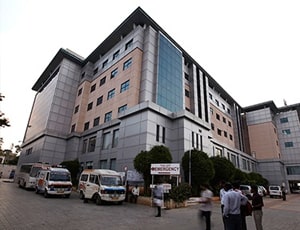
Types of Chemotherapy in BGS Gleneagles Global Hospitals and its associated cost
| Treatment Option | Approximate Cost Range (USD) | Approximate Cost Range (INR) |
|---|---|---|
| Chemotherapy (Overall) | 343 - 1710 | 27669 - 140389 |
| Standard Chemotherapy | 338 - 905 | 27350 - 73407 |
| Targeted Therapy | 884 - 1362 | 72465 - 111450 |
| Immunotherapy | 1137 - 2052 | 91257 - 166540 |
| Hormone Therapy | 456 - 1129 | 36179 - 91587 |
| Intrathecal Chemotherapy | 220 - 674 | 18466 - 54124 |
| Intra-arterial (IA) Chemotherapy | 339 - 893 | 28207 - 73739 |
DOCTORS IN 14 SPECIALITIES
FACILITIES & AMENITIES

Types of Chemotherapy in Indraprastha Apollo Hospital and its associated cost
| Treatment Option | Approximate Cost Range (USD) | Approximate Cost Range (INR) |
|---|---|---|
| Chemotherapy (Overall) | 333 - 1717 | 28143 - 139318 |
| Standard Chemotherapy | 336 - 904 | 28101 - 73586 |
| Targeted Therapy | 884 - 1360 | 73155 - 112046 |
| Immunotherapy | 1139 - 1993 | 92350 - 167625 |
| Hormone Therapy | 440 - 1112 | 36892 - 92300 |
| Intrathecal Chemotherapy | 227 - 660 | 18298 - 56411 |
| Intra-arterial (IA) Chemotherapy | 341 - 911 | 27856 - 72565 |
DOCTORS IN 14 SPECIALITIES
FACILITIES & AMENITIES
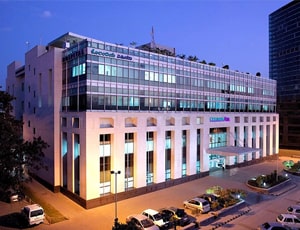
Types of Chemotherapy in Manipal Hospital, Yeshwantpur and its associated cost
| Treatment Option | Approximate Cost Range (USD) | Approximate Cost Range (INR) |
|---|---|---|
| Chemotherapy (Overall) | 338 - 1711 | 27298 - 136508 |
| Standard Chemotherapy | 335 - 889 | 28224 - 72268 |
| Targeted Therapy | 904 - 1326 | 72853 - 109329 |
| Immunotherapy | 1108 - 1996 | 90468 - 169079 |
| Hormone Therapy | 458 - 1108 | 37073 - 90360 |
| Intrathecal Chemotherapy | 224 - 677 | 18567 - 55508 |
| Intra-arterial (IA) Chemotherapy | 340 - 885 | 27168 - 74326 |
Chemotherapy is a category of standardized drug administration of various types for the treatment of cancer. With a curative intent, some combinations of drugs are administered to a patient to prolong their life and also to bring about a reduction in the symptoms shown by the patient. Chemotherapy treatment is considered to be one of the major categories of medical oncology. Many people around the world are prescribed to undergo chemotherapy treatment instead of undergoing a surgical procedure. But many are frightened with the side effects of this treatment as it is believed to reduce the quality of life of the patients.
Chemotherapy is a procedure where non-specific intracellular poisons are used, which are specifically related to preventing the process of mitosis or the natural cell division of the cancerous cells. This technique rather excludes those agents that are responsible for selective extracellular growth signal blockade (signal transduction blockers). If spoken about these agents used in chemotherapy, it has been found that most of them are cytotoxic in nature due to their property of interfering with natural mitosis. However, the cells of cancer can differ widely in terms of showing susceptibility to these administered agents.
Chemotherapy can be defined as a way of mass destruction of stress cells, which would eventually lead to the death of the cells when apoptosis is initiated. The commonly known side effects of chemotherapy can be traced back to the process of damaging normal non-cancerous cells, which are in the process of rapid division. They are sensitive to anti-mitotic drugs that are being administered to the patient and such cells may include the cells of the hair follicles, digestive tract lining, and bone marrow. But nowadays treatment options have undergone a lot of modification by which these side effects can be well countered.
Various options of drugs are available to treat different types of cancer including the following:
Alkylating agents: These kinds of agents prove to be extremely beneficial during the cell’s resting phase. The various kinds of alkylating agents that are employed in chemotherapy treatment include the following:
Nitrosoureas are unique from the rest for choices in chemotherapy treatment due to their ability to cross the blood-brain barrier and treating tumors of the brain.
Plant alkaloids: Plant alkaloids employed for chemotherapy treatment are derived from plants. These include vinca alkaloids, taxanes, podophyllotoxins, and camptothecan analogs. The plant alkaloids are cell cycle specific agents, which enables them to attack the dividing cells in various stages of their division cycle.
Antimetabolites: This kind of chemotherapy treatment involves substances that are similar in composition to the normal substances present in the cell. When these substances get incorporated in the process of cellular metabolism, then the cell is no longer able to divide. They are also cell cycle specific and can be classified further according to the substance in the cell with which they interfere.
Topoisomerase inhibitors: When the topoisomerase enzymes in the body ( topoisomerase I and II) are inhibited as a result of chemotherapy drugs, then those drugs are referred to as topoisomerase inhibitors. During the chemotherapy, the topoisomerase enzymes are responsible for controlling structural manipulation of the DNA which is necessary for the purpose of replication.
Miscellaneous antineoplastics: Different types of drugs make each chemotherapy treatment process unique. Enzymes, retinoids, adrenocortical steroid inhibitor, ribonucleotide reductase inhibitor or antimicrotubule agents can be used as chemotherapy drugs.
Some of the chemotherapy drugs are involved in damaging the cell at the time of splitting while others do their jobs when the gene copies are being made by the cell prior to division. The cells that are in resting phase are very less likely to get damaged. Different kind of drugs damage the cells at different stages and hence a combination of various drugs will increase the chance of damaging more number of cancer cells.
Chemotherapy drugs can be given in a variety of ways. At times due to the destructive nature of stomach enzymes, some of the drugs are impossible to administer as pills. While for other drugs the effects are better realized when administered intravenously. Some of them can be injected into muscles while other can be given directly to the abdominal cavity and bladder directly.
They are administered orally and are available in various forms such as liquids, tablets, capsules, and pill. All these forms can be absorbed by the stomach or under the tongue. The protective coating around them is broken down by digestive juices of the stomach and then the medication is directly absorbed by the lining of the stomach. There are some which have a certain amount of time delay between the administration and the actual release of the medicine.
With the help of a short needle, the drug is administered into the region between the muscle and skin but it does not penetrate as far as the layer of muscles. They are used for some biologic response modifiers and support drugs of chemotherapy. If the platelet count of the patient is low, then it is less likely that such injections can cause any bleeding more than that in case if it was an intra muscular injection.
In this case, the injection penetrates the muscle layer and a large needle has to be used for this so that the medication gets deposited in the tissues of the muscle. Most chemotherapy cannot be implemented via intramuscular injection owing to its harshness. People with low platelet counts are not advised with this due to the possibility of bleeding within the muscle.
This also gets absorbed rapidly in the circulation system in the body. It offers more flexibility, thus making it more common. Continuous infusions are ensured through this method for days and weeks if required. Some of the types of intravenous infusions include the following:
In this procedure, the drugs are meant to reach the cerebrospinal fluid. The blood-brain barrier stops many drugs to reach it and hence in two ways it can be done; one is the lumbar puncture and the other is Ommaya reservoir. A dome-shaped device with a catheter attached is placed in the subcutaneous layer on the scalp. It is threaded to the lateral ventricle of the brain. A small needle is placed through the ommaya reservoir to inject drugs. This is good for chemotherapy for leukemia.
In this case, the drug can be directly drained into the abdominal cavity, the general cavity surrounding the organs. The organs, as a result, get bathed in the medication before it gets absorbed into the tumor site.
Here the drug is given directly to the artery supplying blood to a tumor. This kind of treatment is beneficial for colon cancer, limb melanoma, pancreatic cancer, gastric cancer, and some other forms of cancer.
A urinary catheter is used to access the urinary bladder and useful for people suffering from superficially invasive bladder cancer.
This is the chemotherapy for lung cancer where the drug is administered in the pleural cavity to control malignant pleural effusions and used for symptom relief.
A gliadel wafer can be placed in the cavity after removal of tumor in the brain. It can be left for 2 or 3 weeks to ensure that all cancer cells are finally killed in the area surrounding the brain tumor site.
In this case, a cream is applied to the skin and used to treat cancerous lesions on the skin itself. Not used very commonly but used for treating skin cancer.
Ask your healthcare adviser for the best multiple options and choose the one that meets your expectations
Chemotherapy cost in Spain starts from about USD$ 7500. There are many JCI, OHSAS certified hospitals in Spain that offer Chemotherapy.
Chemotherapy cost in Spain varies from one hospital to the other. The top hospitals for Chemotherapy in Spain covers all the expenses related to the pre-surgery investigations of the candidate. The Chemotherapy cost in Spain includes the cost of anesthesia, medicines, hospitalization and the surgeon's fee. Extended hospital stay, complications after the surgery or new diagnosis may affect the overall cost of Chemotherapy in Spain.
There are several best hospitals for Chemotherapy in Spain. The following are some of the most renowned hospitals for Chemotherapy in Spain:
After Chemotherapy in Spain, the patient is supposed to stay in guest house for another 21 days. This duration of stay is recommended to complete all the necessary follow-ups and control tests to ensure that the surgery was successful.
One of the topmost destinations for Chemotherapy is Spain. It has a variety of accredited hospital, affordable cost of treatment and some of the best medical fraternity. Some of the other destinations that are popular for Chemotherapy include the following:
Apart from the cost of Chemotherapy, the patient is also required to pay additionally for daily meals and guest house accommodation. These charges may vary starting from USD$ 45 per person.
Some of the popular cities in Spain that offer Chemotherapy include the following:
After Chemotherapy, the patient is supposed to stay for about 1 days in the hospital for recovery and monitoring. The patient is subjected to several biochemistry and radiological scans to see that everything is okay and the recovery is on track. After making sure that patient is clinically stable, discharge is planned.
Out of all the hospitals in Spain, there are about 6 best hospitals for Chemotherapy. These hospitals are approved to perform the surgery and have proper infrastructure to handle Chemotherapy patients.
The average cost of chemotherapy in Spain is around 3000 USD with the minimum cost of treatment being 2400 USD and the maximum cost of around 3600 USD.
Cancer treatment or chemotherapy in Spain is turning out to be increasingly popular among tourists who come in for medical purposes from countries such as Europe, America, Middle East, Northern Africa & Russia. There are various reasons for their arrival to Spain for medical treatment. Here are some of them -
Spain is now using modern instruments and technology for the treatment of diseases.
Private clinics in Spain are improving their quality of service to accommodate people from different countries.
Doctors are now well versed in various languages to be able to converse with patients who come in from different countries.
Affordable & accessible treatment and test costs.
Urban, new-age, and modern healthcare set up
Better service and improved quality of service
The price of chemotherapy in Spain depends on a lot of factors such as :
Need for chemotherapy - the severity of the condition and the availability of alternate treatment options
Clinical evidence - an analysis is done to compare various outcomes and the evidence is then validated
Economic impacts - affordability and ease of cost
Financial impacts - on patients, healthcare systems, insurance providers, and the society at large
Access - An assessment is done to check how accessible it is for people
Effects on public health
Research and development
Some of the top hospitals for chemotherapy in Spain are :
Sant Joan de Déu - Barcelona Children’s Hospital
Centro Médico Teknon in Barcelona
Hospital HM Delfos
HM Hospitales
Quironsalud Madrid
Hospital Quiron Barcelona
Clinica Universidad de Navarra (Navarra Hospital)
Here is a list of some of the top oncologists performing chemotherapy in Spain are :
Dr. Jaume Mora Graupera in Sant Joan de Déu, Barcelona who specializes in pediatric oncology
Dr. Susana Rives Sola in Sant Joan de Déu in Barcelona
Dr. Josep Tabernero in Hospital Quiron Barcelona
The success rate of chemotherapy anywhere depends on the type of cancer, the grade of cancer, stage of cancer, comorbid conditions of the patients, age and sex of the patients, overall health of the patients, etc. So as we see, there are a lot of factors that affect the success rate. The success rate is usually calculated as 5-year survival rates. While the success rate can vary depending on the time of detection and rate of development, it varies between 18% to 40%.